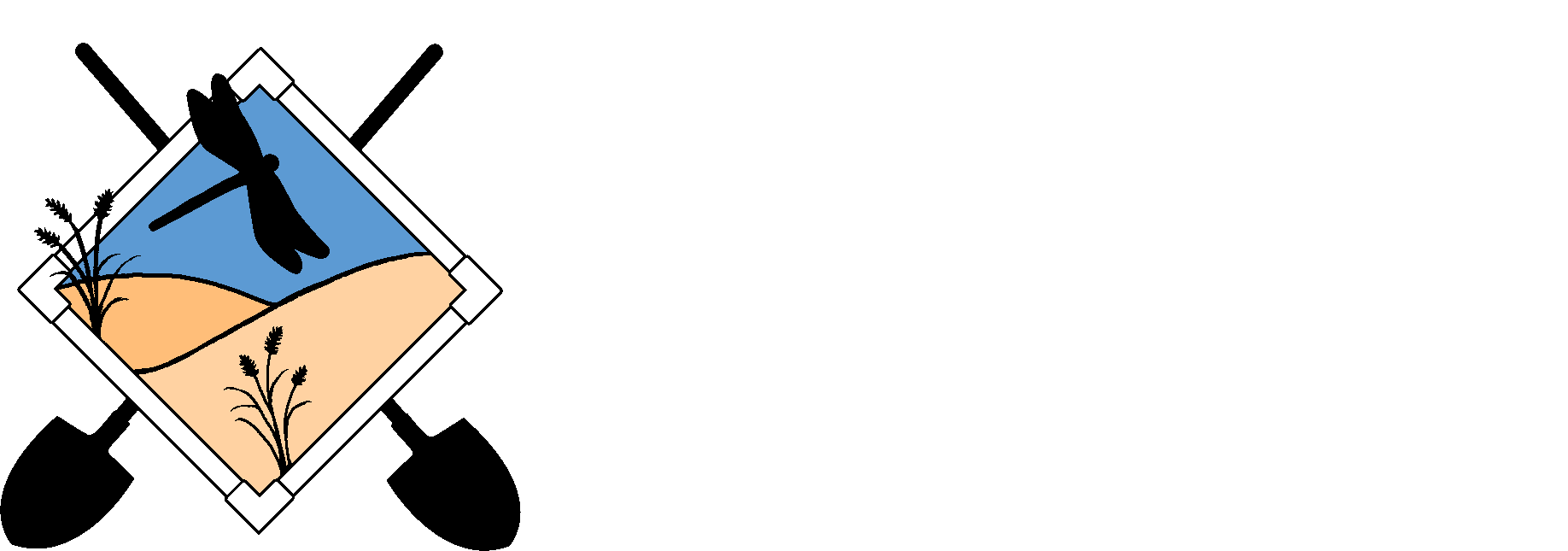Jump to Section/Student
Post-Doctoral Fellows

Ghassen Chaieb (2023 – Current)
I am a postdoctoral fellow at the Fraser Lab, Thompson Rivers University, Canada. I earned my PhD from the University of Bordeaux in France, where I studied plant-plant interactions in North African drylands. My research interests revolve around understanding the drivers that cause shifts and changes in plant diversity at both regional and local scales. To conduct my research, I utilize a wide variety of tools such as fieldwork, experiments, statistical analysis, and laboratory work. Currently, at the Fraser Lab, I am engaged in various projects, including silvopasture, plant invasion, and mine reclamation.
Email: gchaieb@tru.ca

Jay Singh (2019 – Current)
I am a postdoctoral fellow in the Fraser lab at Thompsons Rivers University, Canada. I received my Ph.D. from Montclair State University, USA. As a soil microbial ecologist, my research focuses on understanding microbial community dynamics and soil functions in disturbed soil ecosystems. I use high throughput sequencing and bioinformatics to study the microbial community. I am currently involved in a couple of exciting projects seeking to understand ecosystem functioning in mines and arid grasslands. The first project focuses on studying the impacts of relic DNA on microbial diversity and soil enzymatic activities in reclaimed mines. The other project examines the effect of grazing on the microbial community, plant community, and ecosystem function. My research, in general, attempts to understand whether microbes can be used for bioaugmentation to improve soil functionality. In my free time, I like taking pictures of bugs.
Email: jsingh@tru.ca
Master of Environmental Science Students
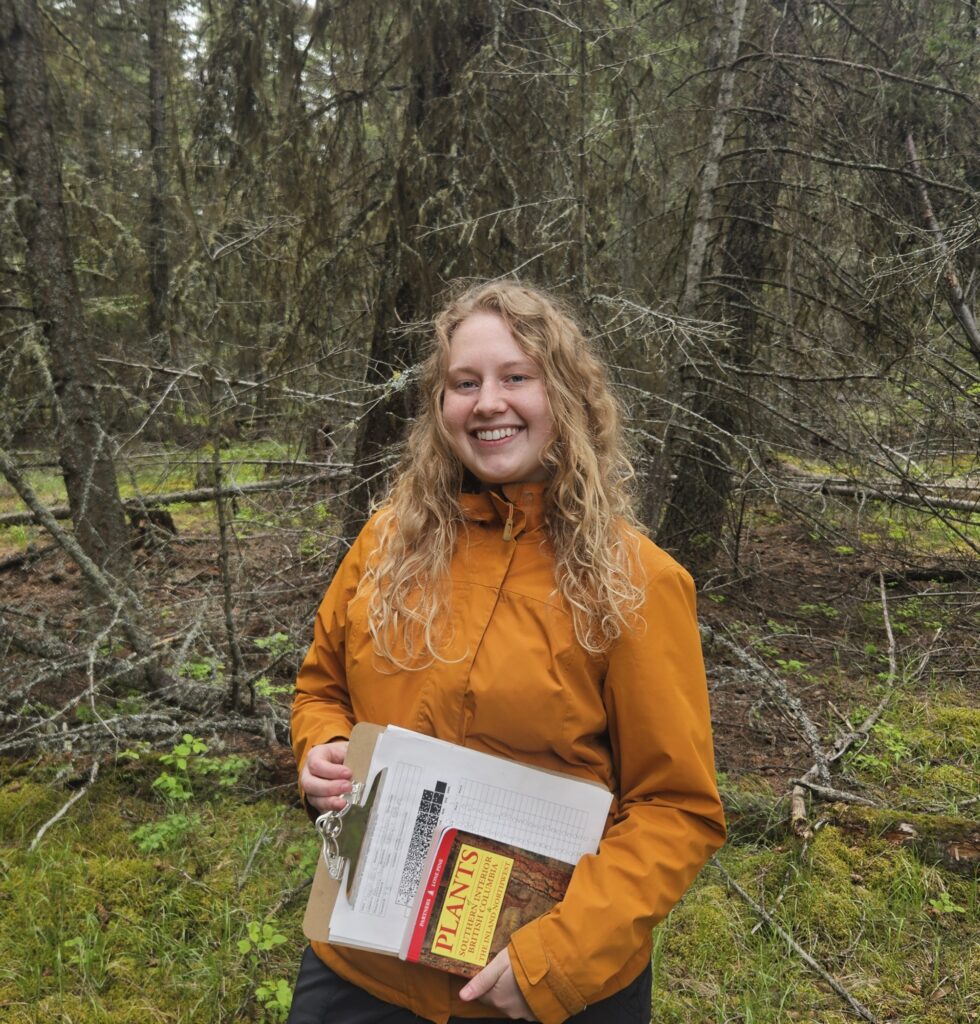
Kaitlyn Van der Zwan (2025 – Current)
Through Thompson Rivers University I completed a Bachelor of Natural Resource Science and an Associate of Arts degree. During this time, I worked as a research assistant in the Fraser Lab where I gained hands-on experience in both field and laboratory settings. This role also gave me the opportunity to contribute to a research project examining how spotted knapweed (Centaurea stoebe) influences soil nitrogen-cycling processes in the grassland soils of Lac du Bois, BC.
This project laid the foundation for the research I am now conducting in my Master’s degree. My MSc thesis builds on these earlier questions by expanding the scope of the investigation to include plant-soil feedbacks, additional nutrient cycling processes, and the longer-term legacy effects of C. stoebe invasion – moving from identifying impacts of invasion to understanding mechanisms that influence plant performance and soil recovery. Ultimately, my goal is to contribute research that helps inform restoration strategies and improve management outcomes for invaded grassland ecosystems.
When I’m not in research mode, I can be found in the wilds of Kamloops either hunting down good food, listening to an audiobook, catching up on sorely missed sleep, or playing a game of crib with friends and family.
Email: kaitlynvdz1@gmail.com
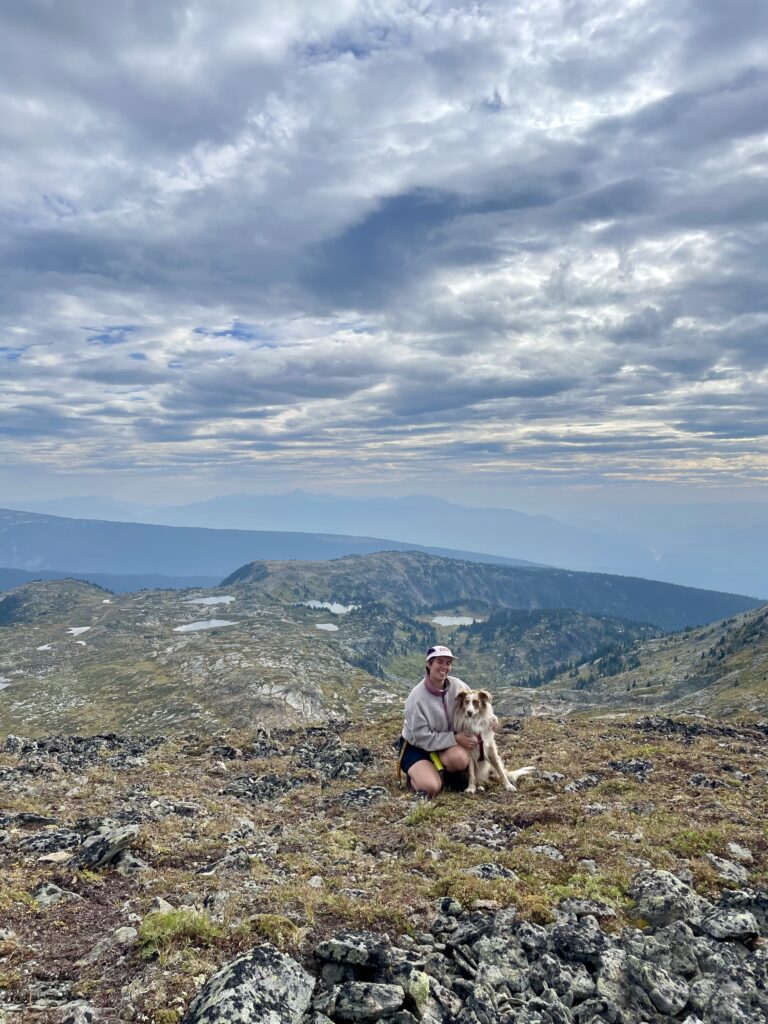
Natalie Ross (2025 – Current)
My research is focused on phytoremediation of mine-affected waters, looking at specific wetland plants and their ability to remove metals. I will be doing a greenhouse trial, where I will grow four different wetland plants and expose them to low and high concentrations of effluent based off water quality found at Highland Valley Copper.
In my undergrad I did research in the Langley Bog, where I developed a love for wetlands. More recently I became interested in phytoremediation and the importance of passive water treatment systems through my current work at the Citxw Nlaka’pamux Assembly, where I have worked closely with mining companies and have seen what impacts they have on downstream water quality, surrounding plants, animals, and communities. This project combines both of those passions.
In my free time I can be found outside playing with my dog, or reading a good book in front of my fireplace.
Email: rossn24@mytru.ca
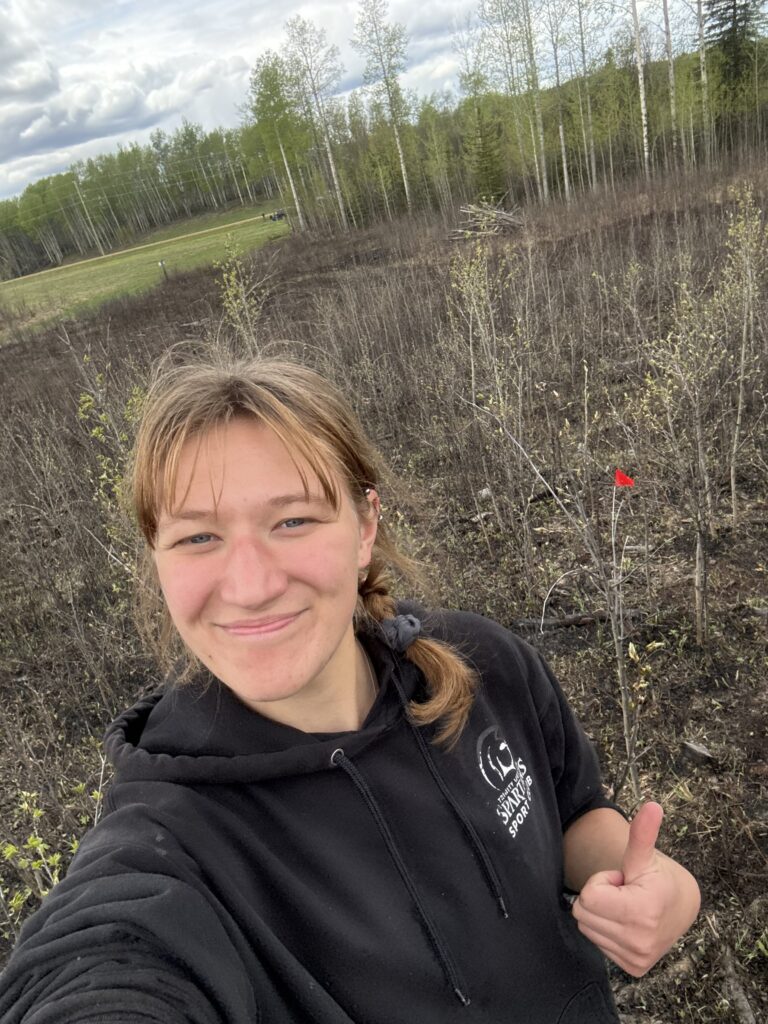
Kristen Korten (2025 – Current)
Prescribed fire: Implications for forage management and soil health.
I am working with the use of prescribed fire on range land to determine best practices for forage management and effects on soil health. Having obtained my honours bachelor of science, I spent a lot of time in my undergraduate years on various different projects that included both field and lab work. I have worked on projects involving observation of the American Kestrel, and the use of fungi to make renewable and sustainable materials for various different fields including construction, packaging, or even just at home items! My research in the lab for my honours project included working with fungi to produce a form of bio-control that promotes crop growth, reduces disease incidence and works as a form of pest control. To this date, I have really enjoyed all the different fields of research I have managed to be a part of, and now I am equipped to be researching the use of prescribed fire on land and looking at what is going on beneath the surface as well as to the visible eye.
My objectives for this project are to evaluate the impact of prescribed fire as a tool for pasture rejuvenation, and to evaluate the impact of prescribed fire on soil health after prescribed fire, both with and without grazing on the land. With these objectives in mind, this project will assess pasture rejuvenation through forage production, plant community composition, and forage nutrition, as well as the potential positive and negative impacts of prescribed fire on plant and microbial diversity, plant-fungal symbionts, soil health, and carbon storage/cycling. This project will inform and aid range owners in the best practices to keeping their land, and I am very happy to see the impact my research will generate on the present management techniques.
Email: kortenk24@mytru.ca
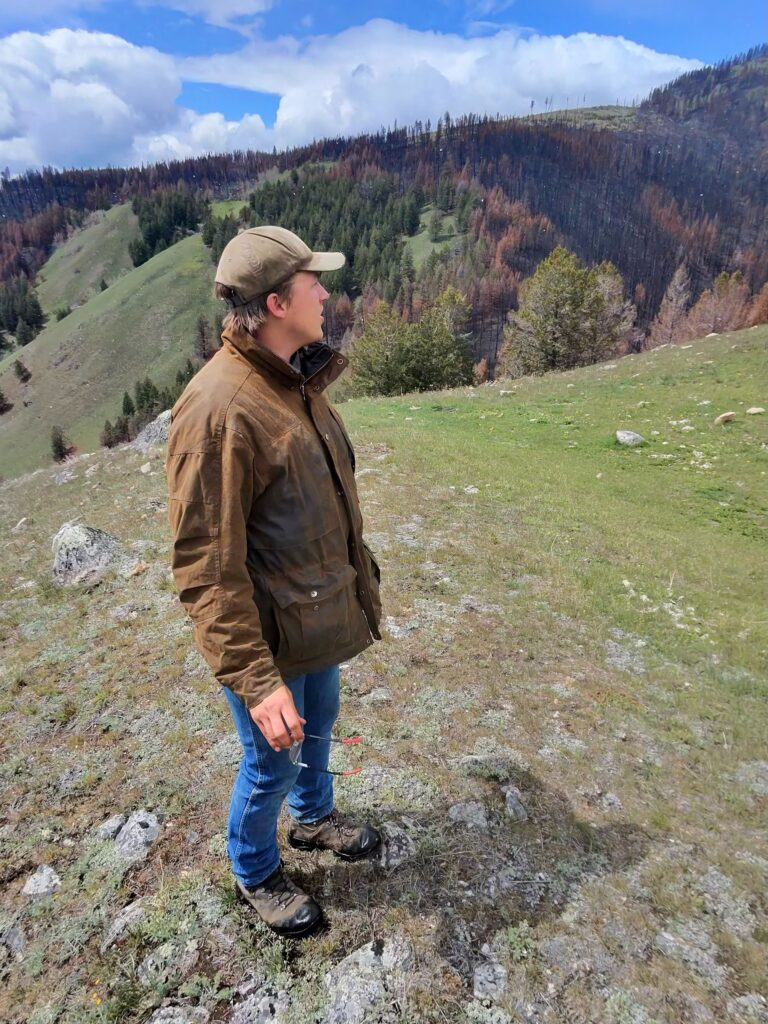
Thomas Alexander (2025 – Current)
I am a Master of Environmental Science student at Thompson Rivers University, specializing in the advancement of precision ranching technologies to support sustainable livestock management in British Columbia. My current research focuses on the implementation of virtual fencing technology at an operational scale across steep and ecologically diverse rangelands. Through this work, I aim to evaluate the effectiveness of virtual fencing collars for managing cattle movement, reducing operational costs, all while minimizing environmental impact. A key goal of my research is to identify best practices for establishing virtual boundaries that optimize both containment and animal welfare.
I hold a Bachelor of Natural Resource Science (2024) from Thompson Rivers University, where I developed a strong foundation in ecosystem services, land stewardship, and adaptive resource management. I was raised in Southern Alberta, where the ranching industry is incredibly important. This has helped me understand cattle behavior and management practices on the landscape. My experience navigating the intersection of traditional ranching practices and emerging technologies informs my approach to research and outreach.
By working directly with producers and applying virtual fencing innovations in real-world settings, I hope to contribute to more efficient, ecologically sensitive, and economically viable rangeland management strategies across Western Canada.
Email: alexandert201@mytru.ca

Dilshani Ranasinghe (2024 – Current)
My research focuses on wildfire management and climate change adaptation, particularly emphasizing stakeholder-driven strategies for mitigating risks in the urban-wildland interface. I will explore how communities, forest managers, and policymakers value adaptive wildfire management strategies. Using a choice experiment methodology, I aim to capture stakeholder preferences and their willingness to pay for various solutions, ensuring the proposed strategies are both effective and economically viable. Additionally, I am conducting a study on the economic impact of wildfires on property values in Kamloops, employing hedonic pricing models and spatial analysis to provide actionable insights for land-use planning and climate resilience.
Before beginning my master’s studies, I worked as a Climate Change and Sustainability Officer at Climate Smart Initiatives, providing technical guidance on climate policy and sustainability practices across South and Southeast Asia. I have also contributed to policy frameworks under the UNFCCC, developed MRV systems, and smart ETF tools, and conducted carbon footprint assessments. In addition, I served as a Research Assistant for a project evaluating the damages caused by the Xpress Pearl ship disaster. I have conducted impactful research on marine turtle conservation in Sri Lanka, applying contingent valuation methods to assess conservation strategies. My experience in survey design, statistical analysis, and stakeholder engagement has equipped me to address interdisciplinary environmental challenges and contribute meaningfully to sustainable solutions.
Passionate about environmental sustainability, I am committed to advancing innovative solutions for climate adaptation, ecosystem restoration, and community resilience. Through my current research and past experiences, I strive to contribute to creating a more sustainable and equitable future.
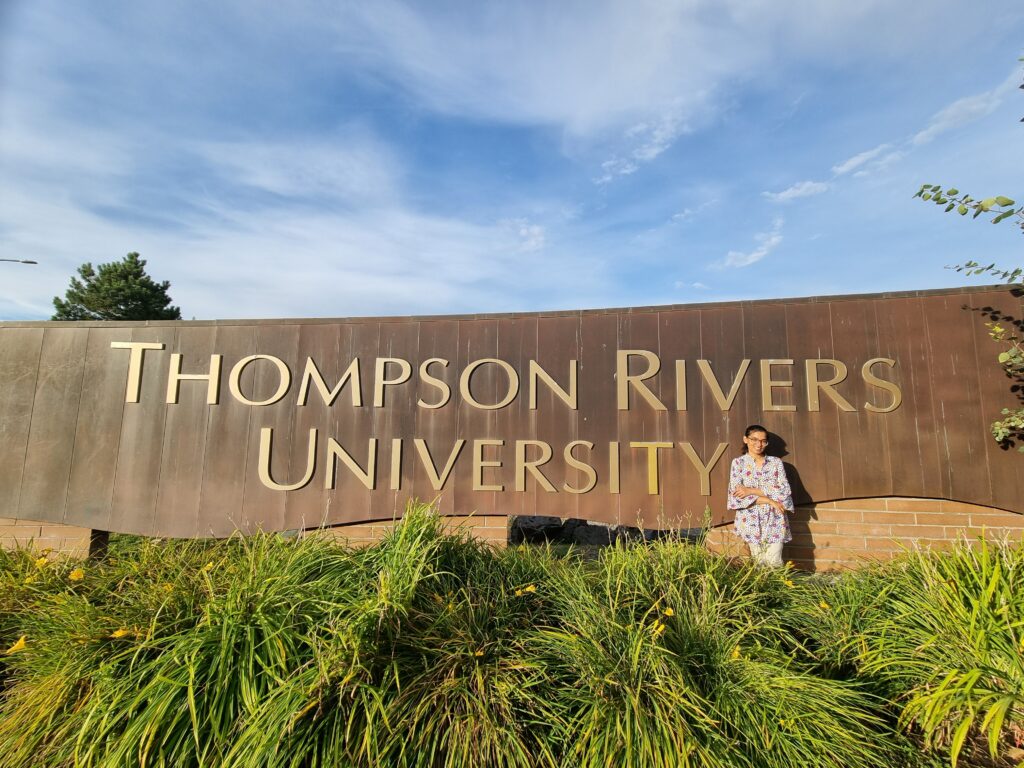
Rabeya Shikdar Orpa (2024 – Current)
My project is to work on mine-site reclamation, and I am looking into the robust reclamation development of the largest open-pit copper mine of Canada, Highland Valley Copper (HVC) Mine. As part of my project, two greenhouse trials were conducted with the overburden and fine-grained mine wastes (tailing) from HVC and local trees, shrubs, and grasses were planted after applying amendments to the soil. I am looking forward to analyzing the samples (soil, root, tailing, and vegetation) in the lab to perform Elemental Analysis and ICP-MS.
Before coming to Canada, I was living in Copenhagen, Denmark where I had learned about sustainability and environmental science in numerous ways. I travelled through North and Eastern Europe to understand diversity in the context of geographic location and culture. I earned my Bachelor of Science from the University of Dhaka, Bangladesh where I worked as a senior researcher of the “Advanced Research Group” and published two research papers. I worked as a climate activist and youth skill development with over twenty different non-profit organizations. I am looking forward to gathering invaluable knowledge and experience by working in the Fraser Lab and hope that with my ongoing research I will be able to contribute to ecosystem restoration and reclaim damaged mine-sites.
Email: shikdarorpar23@mytru.ca
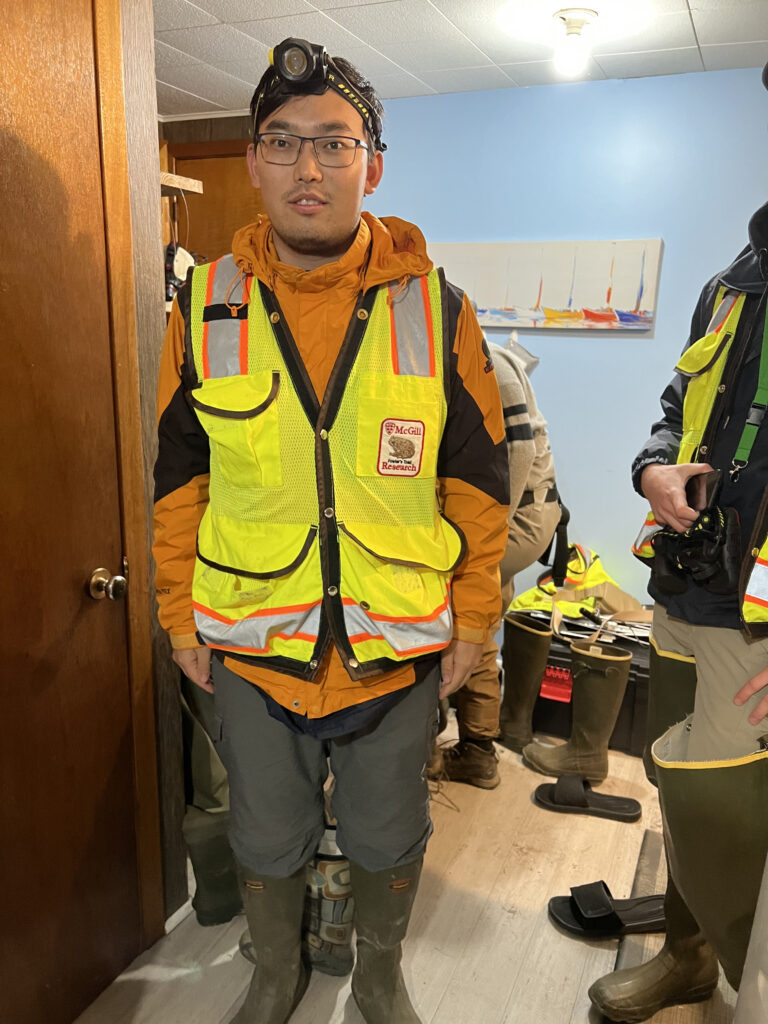
Zhaohui (Sunny) Han (2024 – Current)
I have had a broad interest in environmental science since graduating from McGill University with both a Bachelor of Arts and Sciences (Environment) and a Master of Integrated Water Resource Management (IWRM).
I like to travel around the world. During my studies, I participated in a field semester and travelled to Barbados to explore improving community design. I also participated in the McGill exchange program at the University of Queensland (UQ) to explore soil science in an Australian context.
I also enjoy volunteering in community activities. I went to Bandung, Indonesia, to teach English to local kids and experience their lives. I volunteered in a McGill community garden to recognize different types of herbs and share knowledge of their “hidden” uses.
I am co-supervised by Dr. Panagiotis (Peter) Tsigaris and Dr. Lauchlan Fraser. My research will involve sending out a survey to analyze sets of choices exploring Canadian people’s willingness to pay for mining reclamation. This will involve applying the multinomial logit model approach to rank people’s preferences for the hypothetical choices we provided.
The Fraser Lab also provides plenty of volunteer opportunities, allowing me to explore other research fields and potentially borrow research ideas from my colleagues. The members of the Fraser Lab have many connections in both industrial and academic fields; I am excited to be a part of this team to participate in a collaborative environment.
Email: hanz23@mytru.ca
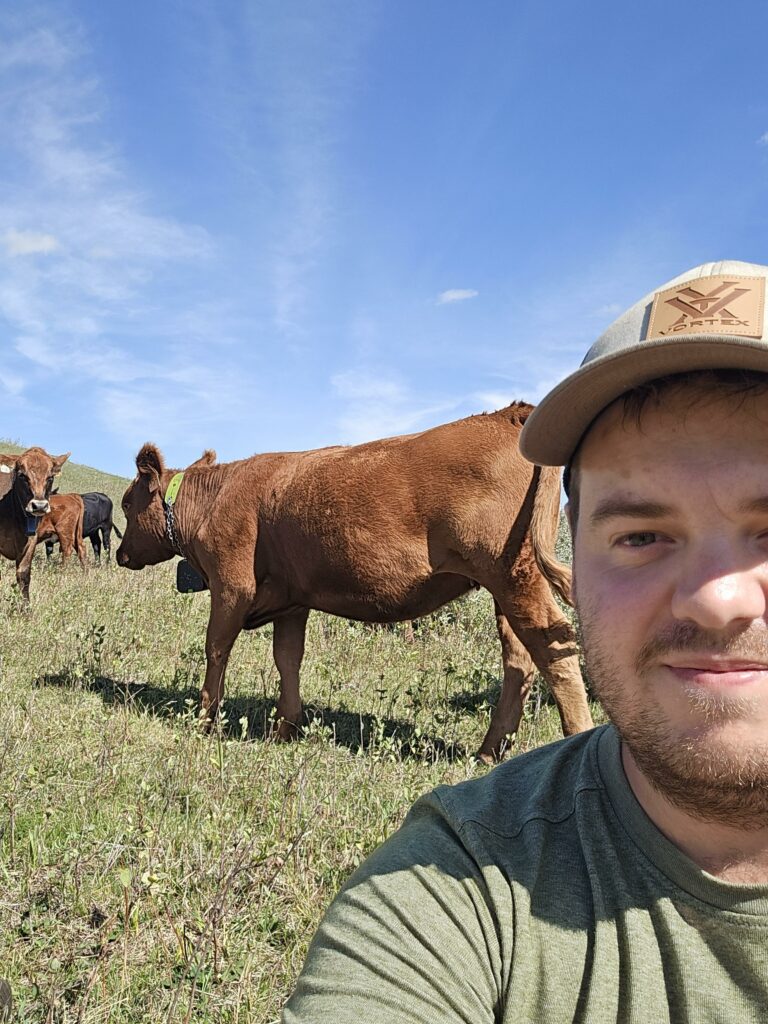
Matthew Francis (2023 – Current)
I am a committed master’s student at Thompson Rivers University, specializing in Environmental Science with a focus on integrating cutting-edge technologies like drones and virtual fencing into ranching. My research is driven by a passion for improving agricultural efficiency and sustainability, and I am dedicated to exploring innovative solutions that enhance traditional ranching practices. I completed my Bachelor of Science in Cellular, Molecular, and Microbiology at Thompson Rivers University, where I developed a strong foundation in scientific principles and analytical skills. This background equips me to approach my current research with a rigorous, evidence-based perspective. Growing up on a cattle ranch in the southern interior of British Columbia, I gained firsthand experience with the challenges and opportunities within the ranching industry. This upbringing has given me a deep appreciation for traditional ranching methods, as well as the motivation to enhance these practices through modern technology. My research focuses on testing and implementing technologies like drone imaging to optimize agricultural measurements and virtual fencing to improve livestock management and grazing efficiency. I aim to bridge traditional ranching practices with innovative solutions, ultimately contributing to a more productive and environmentally sustainable agricultural landscape.
Email: mfrancis@tru.ca

John Kang (2023 – Current)
Hello, my name is John and I am in the Fraser Lab! My research involves studying soil carbon sequestration in an interior silvopasture. My site is a Lodgepole pine (Pinus contorta var. latifolia) plantation that was strip-thinned into a silvopasture at three widths (10m, 15m, 20m) resulting in paired strips of pasture and forest. The cleared pastures were seeded with agronomic forage species and cattle graze the whole site throughout the growing season. I will be looking into how strip widths and grazing affect the soil carbon and microbial community. Besides my research, I have a background in botany and ecological restoration, and I love to try new things! Although I do prefer spending time enjoying nature, playing sports, and learning practical skills. I am a curious person who loves to chat about a variety of academic topics which helps me have a holistic understanding of natural resource management.
Email: johnk1105@gmail.com
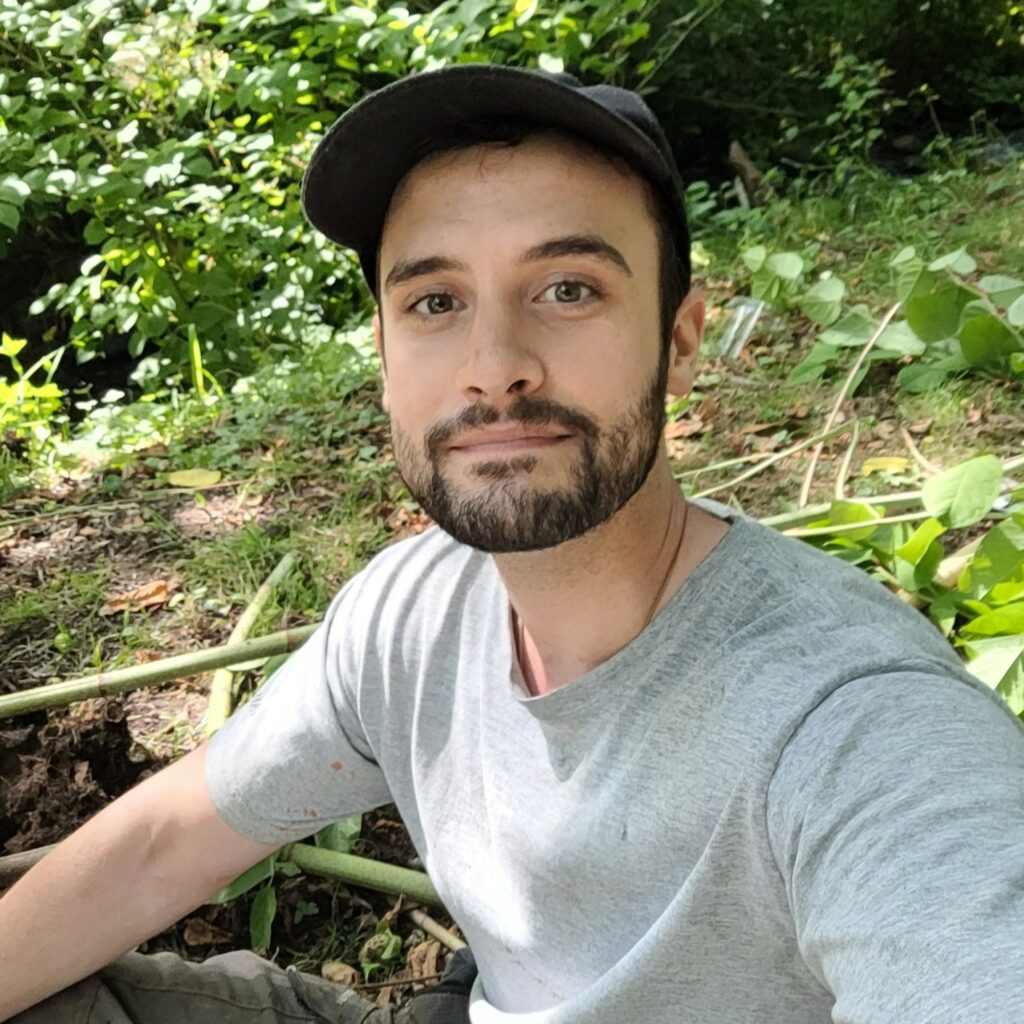
Adam Soames (2023 – Current)
I’m a Master of Environmental Science student at Thompson Rivers University, where I study invasive plants with a focus on knotweeds. My research, supervised by Dr. Wendy Gardner and done in collaboration with the Fraser Lab, explores physiological tolerances of knotweed to heat and anoxia. Before grad school, I spent three years as a post-harvest forester, where I developed skills in leadership, resource management and ecology. When not working with nature, I like to exercise my programming and applications skills, working as a developer and GIS consultant.
Email: asoames@hotmail.com
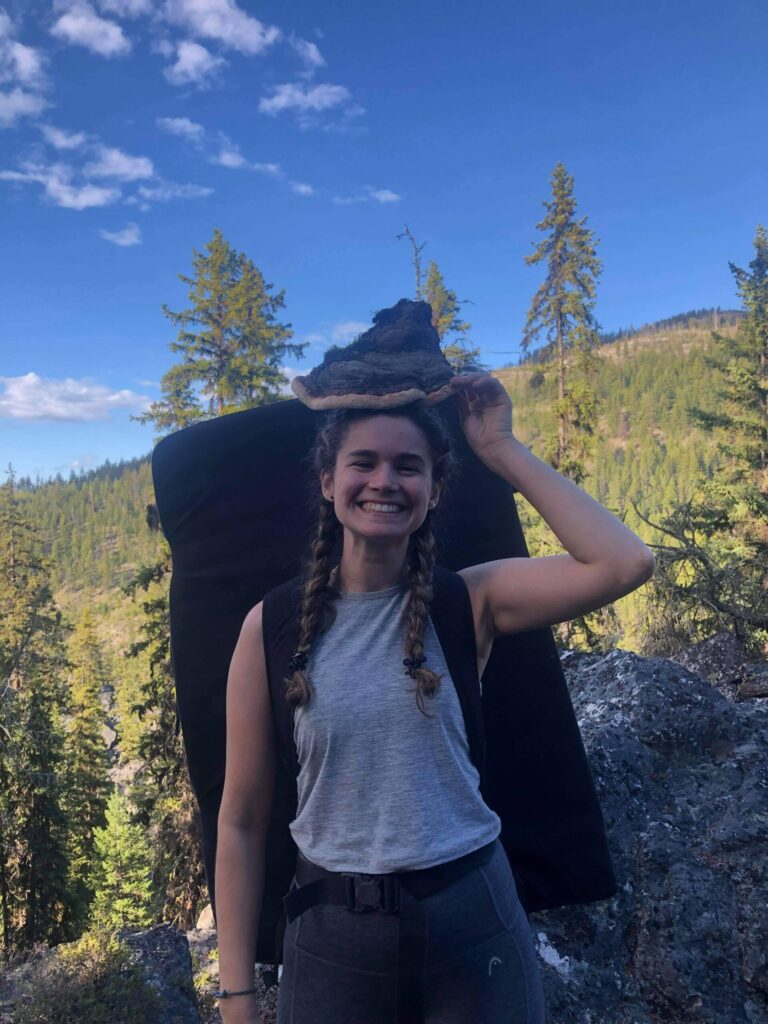
Gillian Spencer (2021 – Current)
Reducing wood volume loss of Lodgepole pine (Pinus contorta var. latifolia) trees in a strip harvesting system
Clearcuts are the most dominantly used method of harvesting in British Columbia, but they have more negative ecological implications compared to retention harvesting. My research focuses on refining a type of retention harvesting, strip harvesting by reducing the loss of tree volume commonly observed by trees growing on the edges. The site used for this study, in Kelowna, B.C. (within Syilx Okanagan People’s territory), has a variety of orientations and widths of harvested strips. As there are more trees growing on the edges of an area that is strip harvested, they are subjected to more “edge effects.” Those effects can be differences in soil moisture, foliage growth, exposure to sunlight, and transpiration. Using LiDAR and manual measurements we will determine what strip harvesting treatment results in the least loss of wood volume. This research will hopefully increase confidence in and alternative harvesting method to clearcuts that is less harmful to ecosystems.
Email: gillian.spencer98@gmail.com

Shesley Callison-Hanna (2021 – Current)
Planning for the Future Climate: Using Native Plant Species for Mining Reclamation
My name is Shesley (Shes’lē/ Sloode’kwo); I am a member of the Tsesk’ye Clan from the Tahltan Nation and the Hanna family of the Nlaka’pamux Nation. My sites are located at a reclaimed Tailings Storage Facility (TSF) in the Southern Interior of British Columbia within Nlaka’pamux territory. The top of TSF is roughly 1500 m and is located within the Montane-Spruce BEC zone. Climate change projection models show that the TSF will shift from being in the Montane-Spruce BEC zone to the Interior Douglas-Fir BEC zone, and drought intensity and frequency will increase. Reclamation has included the application of biosolids and seeding of agronomic grasses. Presently the sites are low in diversity and dominated by agronomic grasses. The goal for the TSF is a native grassland plant community. My project will address how native plant species can promote biodiversity to combat drought. I will also be looking at how organic amendments influence native plant recruitment, heavy metal uptake, and soil nutrient availability. My project encompasses a field experiment, a greenhouse experiment, and semi-structured interviews with community members.
Email: shesley@me.com
Coordinators & Assistants
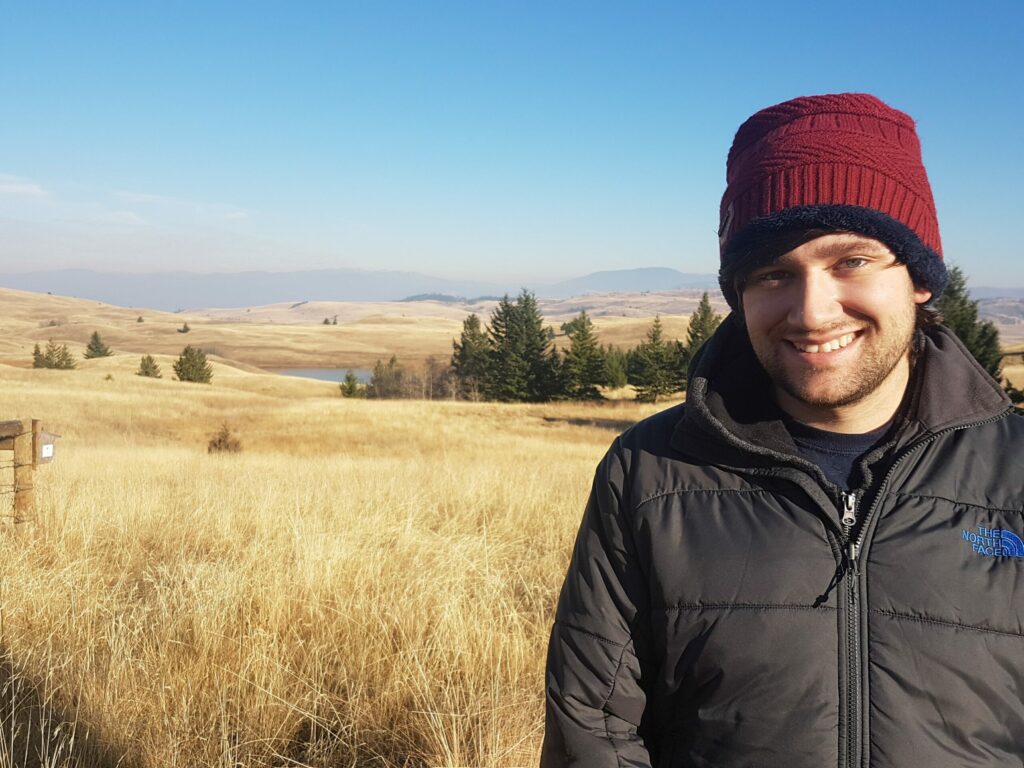
Matthew Coghill (2015 – Current)
Lab Manager & Research Associate, MSc
I have been a part of the Fraser Lab in some capacity since 2015. During my time here, I have had the great fortune of participating in many other students projects as a helper as well as conducting my own Master of Science project where I looked at the soil legacy effects of spotted knapweed. I also collected data for a variety of international projects, including PlantPopNet, HERBDIVNET, and BIODESERT to a small extent. While I enjoy collecting field data, I have a great amount of experience with data analysis and spatial modelling using open-sourced tools. I defended my Master of Science in March, 2021 and I am now back at the Fraser Lab to assist with ongoing projects, as well as to help coordinate the large lab. In addition, I have developed and taught a new course titled “Ecological Modelling” where I guide students in the use of open-sourced software to develop complex regression and classification based geospatial models.
Email: mcoghill@tru.ca

Jordy Major (2025 – Current)
Undergraduate Research Assistant
Working with the Fraser Lab has allowed me to apply lessons from my studies to real-world field and laboratory settings while deepening my understanding of ecosystem reclamation. These experiences have directly informed my undergraduate Honours thesis, in which I am assessing the cellular viability of knotweed (Fallopia spp.) following treatment. I aim to contribute to invasive plant research, as these species are major drivers of global biodiversity loss.
In 2026, I will graduate from Thompson Rivers University with a Bachelor of Arts in Political Studies and Economics and a Bachelor of Natural Resource Science. My goal is to continue working in ecosystem reclamation throughout my career, building on the foundational skills I’ve developed with the Fraser Lab.
Email: jordymajor1998@gmail.com
